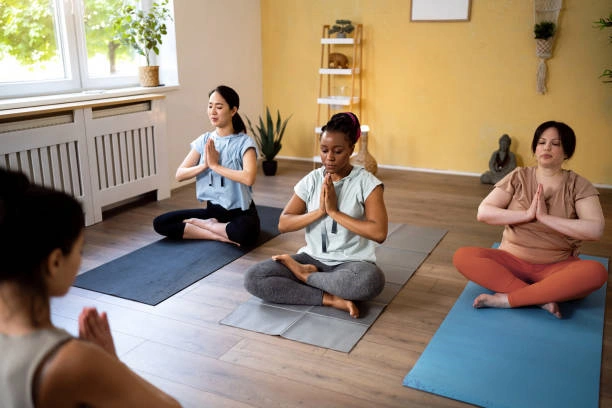Meditation for Health: The More You Sit, the Healthier You Get
Meditate and find health in tranquility.
We’re all working professionals, constantly on the go, much like a clock wound too tightly. We rush from one meeting to another, respond to endless emails, and work on countless presentations. As a result, back pain, tension, anxiety, dull complexion, and dark circles that can’t be hidden by any amount of concealer inevitably become our close companions. Through meditation, you can not only improve your immunity and reduce anxiety but also achieve skincare and weight loss benefits. If you don’t have an hour to spare at the gym every day, at least take 10-20 minutes for meditation.
1. Relieve Stress and Enhance Happiness
A Harvard Medical School professor states that meditation can reduce muscle tension and lower blood lactate levels. Tests show that practicing meditation for 20 minutes daily for a week improves concentration and emotional control, while anxiety, depression, anger, and other negative emotions significantly decrease. Additionally, meditation promotes blood circulation in the brain, shifting reactions from “fight or flight” to “acceptance of reality,” thus enhancing one’s sense of well-being.
2. Protect Your Liver
Do you choose to nap or go for a walk after lunch? It’s actually best to meditate for about half an hour before engaging in other activities, as this is beneficial for liver health. After eating, blood is concentrated in the digestive tract for digestion. When the body transitions from lying down to standing, blood flow to the liver decreases by 30%, and it decreases even further if you start walking. If the liver experiences inadequate blood supply, its normal metabolic functions may be affected. So, after meals, sit quietly and meditate for 10-30 minutes, allowing more blood to flow to the liver and provide oxygen and nutrients to liver cells.

3. Reduce Appetite and Control Weight
The fast-paced urban lifestyle makes us rush through everything, including meals, as if at war, resulting in overeating during breaks. Overeating is a stress-induced behavior. When you feel the urge to relieve stress through food, try meditating to relax your body and mind first. This can help curb the impulse and slow down your eating pace, allowing you to savor each bite and gradually reduce food intake, thus effortlessly saying goodbye to belly fat.
4. Lower Blood Pressure and Prevent Cardiovascular Diseases
In the U.S., meditation therapy has been used on hypertensive patients, revealing that meditation lowered systolic and diastolic blood pressure by 4.7 mmHg and 3.2 mmHg, respectively. This indicates that meditation effectively reduces blood pressure, significantly lowering the risk of cardiovascular diseases such as atherosclerosis without the side effects of medication.
5. Relieve Pain Without Painkillers
When that time of the month comes with unbearable abdominal pain, painkillers become a necessary lifeline, despite concerns about side effects. Try meditation; it’s effective for pain relief. Research shows that while meditation doesn’t change the intensity of pain, it reduces the emotional response to it. Meditation trains the brain to focus on the present, thus spending less time anticipating negative events.

7-Step Office Lunchtime Meditation
Some say that meditation is like gasoline, providing a source of energy. With an 8-hour workday, lunchtime breaks are crucial. Take 10 minutes each day to meditate, and you may find unexpected benefits.
- Adjust the chair to a suitable height, with your hips touching the backrest.
- Stretch your legs slightly forward, beyond the knees.
- Place your hands on your thighs, palms facing up.
- Keep your head naturally upright, avoiding stiffness.
- Relax your shoulders, letting them drop without lifting them.
- Close your eyes, exhale stale air, press your tongue to the roof of your mouth, and keep your lips closed.
- Breathe slowly and deeply, maintaining a smooth, long, deep breath.
Common Questions
- Is longer meditation better? When starting out, meditate for 15-30 minutes, gradually increasing to an hour.
- Can I use an alarm clock as a reminder? Checking the time once or twice during meditation won’t affect its effectiveness. As you meditate more frequently, you’ll naturally develop a 20-minute internal clock. Avoid using an alarm clock, as its sudden sound can disrupt the low metabolic state achieved through meditation.
- What if I can’t calm my mind due to distractions? Try meditating with some soothing music or music specifically designed for meditation, focusing your attention on your breathing.








